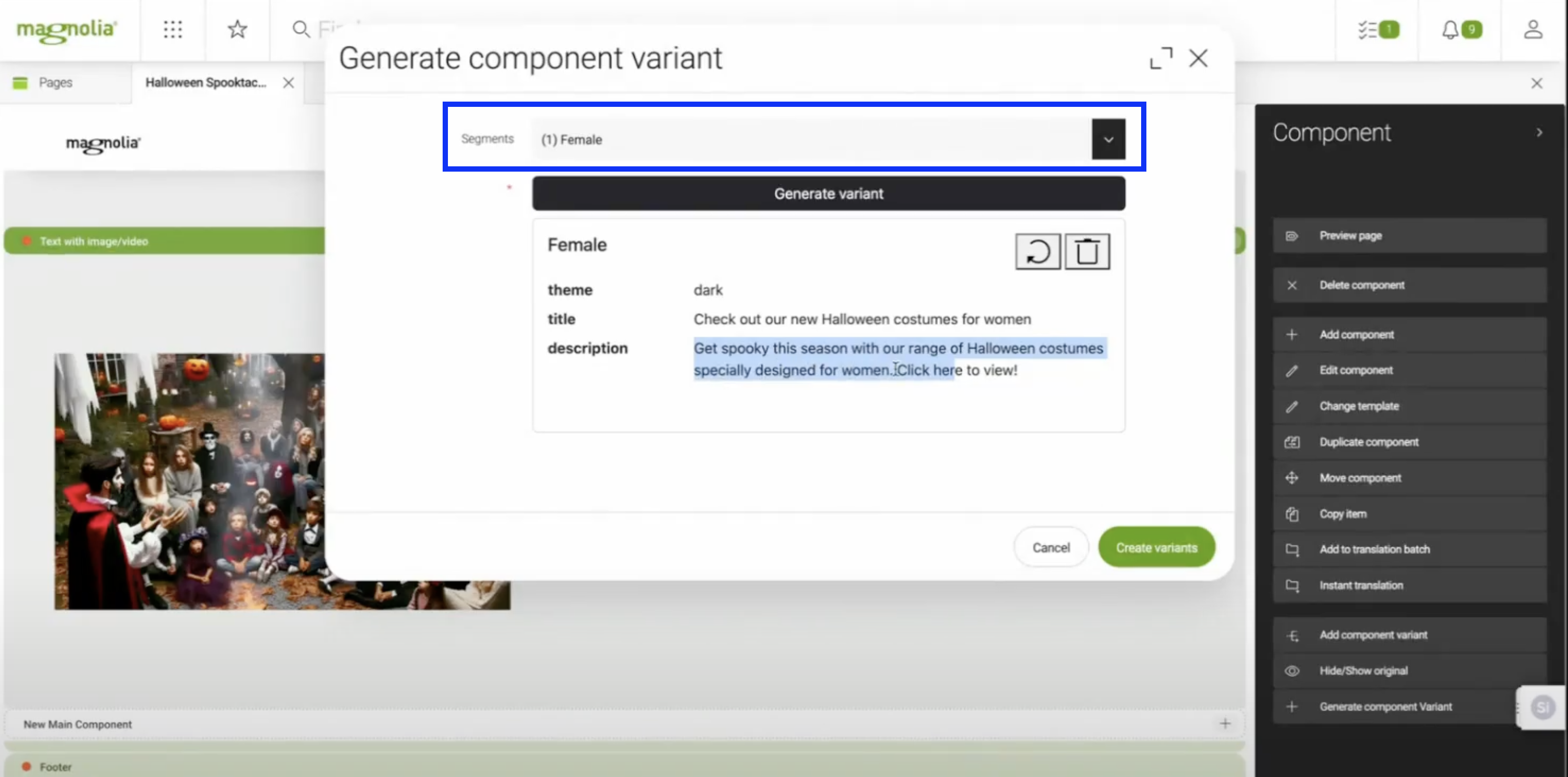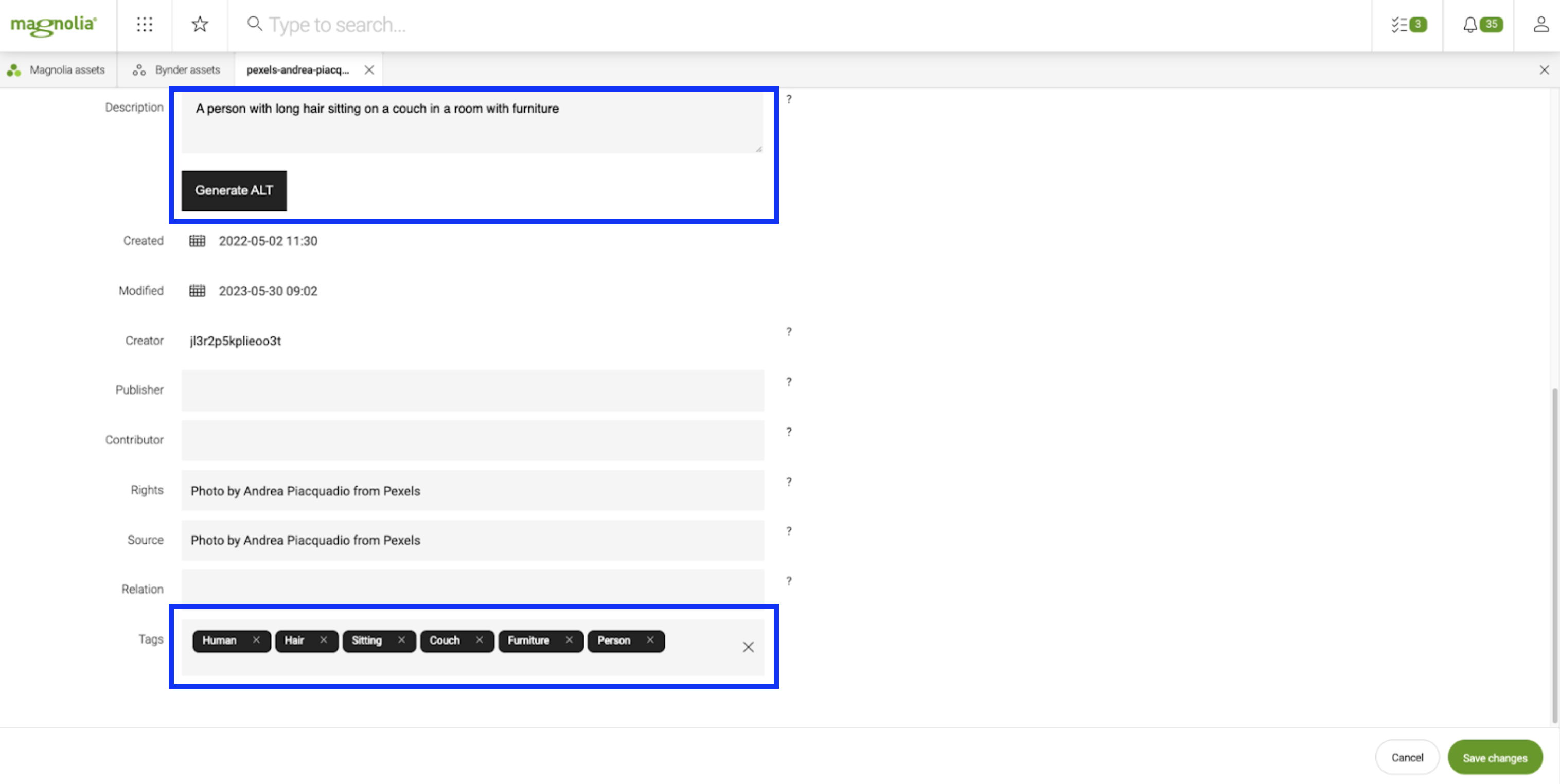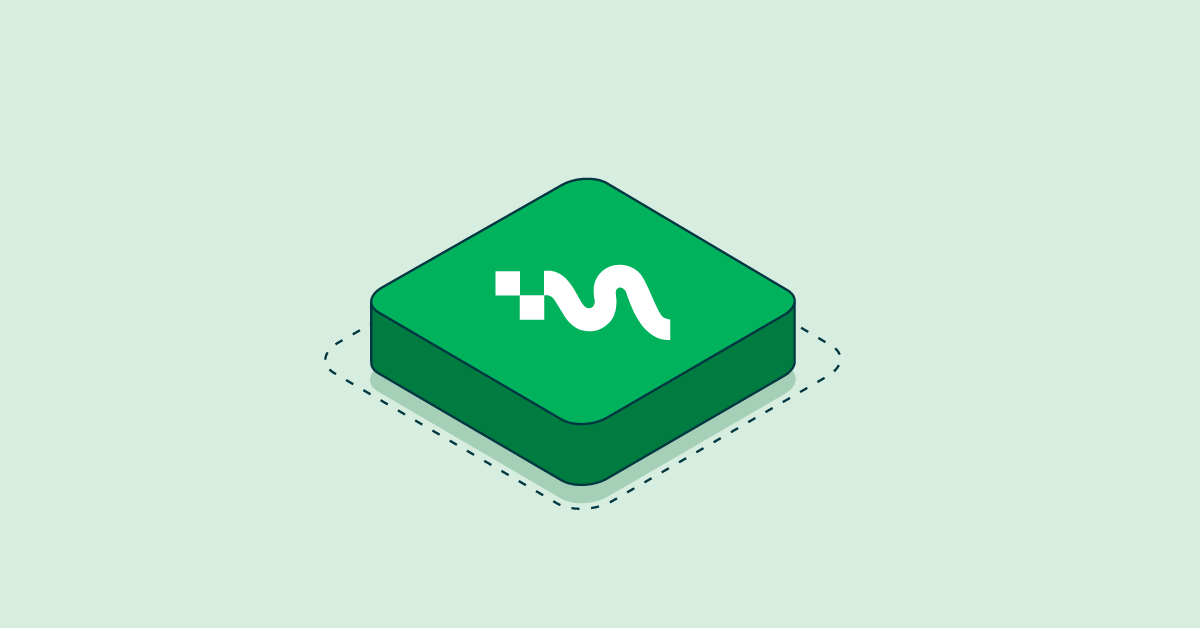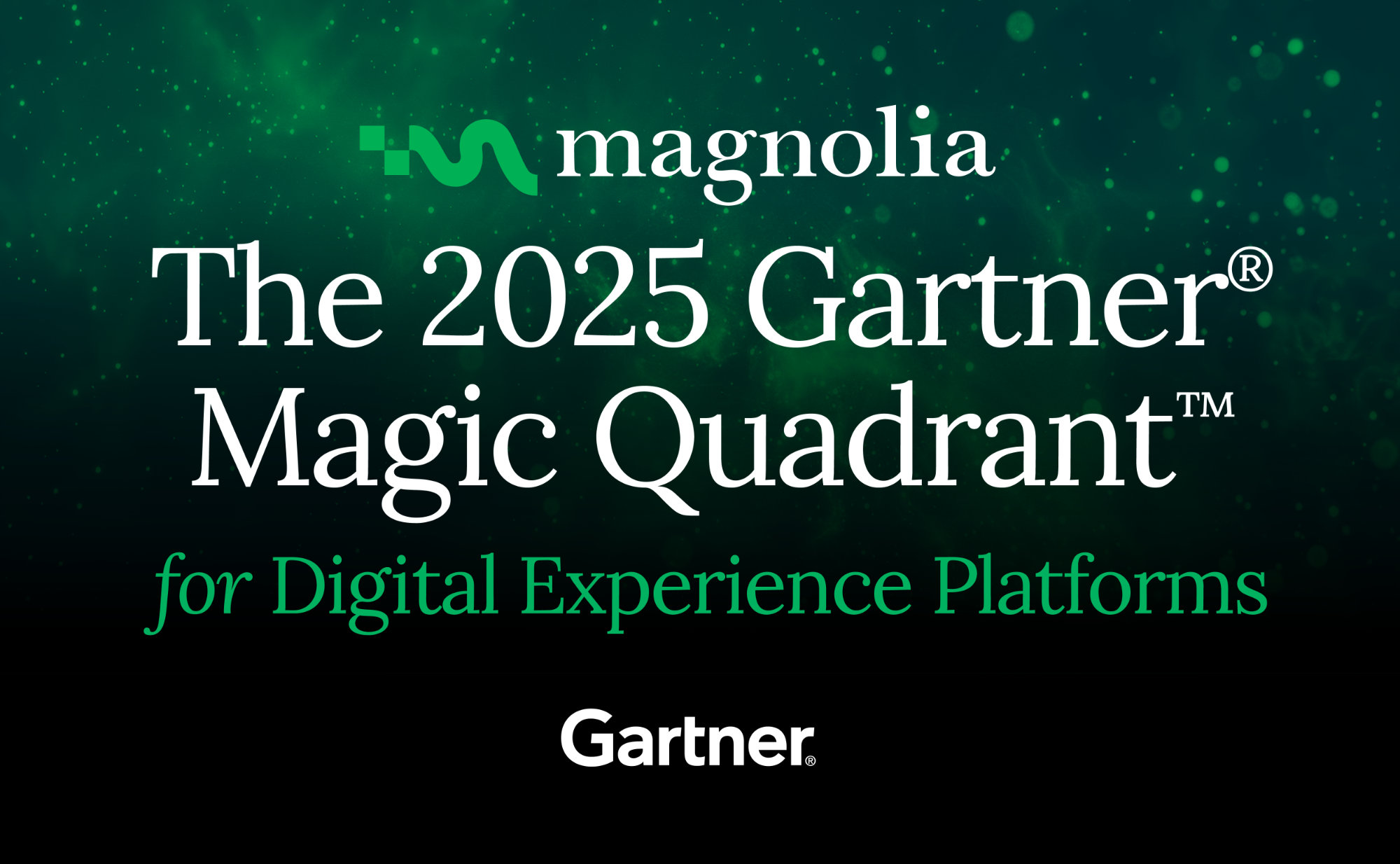- Nov 15, 2023
- 7 min
Unlocking hyper-personalization with generative AI: A guide
Magnolia in action
Take 12 minutes and a coffee break to discover how Magnolia can elevate your digital experience.
Regardless of whether you follow the news cycle, you’ve probably encountered artificial intelligence (AI) at this point. Maybe you’ve even heard about generative AI models. With 100 million active ChatGPT users in the United States alone, that’s no surprise.
The reason why AI algorithms seem to be part of every headline these days is because they impact one industry after another. 69% of organizations already agree that generative AI will transform the job landscape and existing workflows. While prompt engineers are often the first to come to mind, the exciting part is that even the developers behind AI technology can’t always tell how it will affect different industries.
So, it’s clear that the almost unpredictable ways in which AI can assist companies are major contributing factors to this excitement.
Here at Magnolia, we care the most about AI assisting content marketing teams. In today’s digital landscape, no brand can really afford to ignore the demand for ecommerce personalization, and generative AI will certainly be part of the solution. Still, we realize that it’s easy to announce a new era and that the individual steps involved are more complicated once you have to change entire production workflows.
So with all that said, let's take a closer look at how generative AI can support your content teams, helping them become faster and more efficient in serving user-friendly digital experiences while saving time.
What is generative AI and how does it assist with personalization?
You’ve probably encountered one of the countless headlines explaining AI’s recent breakthroughs, but it’s easy to get lost in the technical weeds. We'll provide some orientation.
AI refers to a broad field of applications and systems in computer science aiming to mimic human intelligence. These activities include understanding natural language, recognizing patterns in digital images, or making decisions during a chess game. Across all these tasks, AI aims to develop models on the go that are supposed to replicate human cognitive functions, or in some cases, parts of them.
To make sense of all the data input and improve performance over time, AI models need to use machine learning (ML) – a set of statistical techniques that classify data and make predictions. Common ML techniques include regression, classification, clustering, and reinforcement learning.
If we narrow it down even further, we arrive at generative AI. This application of AI and ML is specifically geared toward turning the insights won through ML into strategies for content generation across text, images, music, or video. Because it has been trained on countless examples of blog posts or headlines, generative AI allows content creators to produce copy resembling patterns in the training data more quickly.
Sometimes, this can mean generating images or copy whole-cloth. Other times, it involves translating or localizing landing pages or categorizing images.
With a digital experience platform (DXP) like Magnolia’s that has generative AI capabilities in place, these algorithms can have an especially profound effect on customer-facing content personalization, significantly cutting down on time-consuming manual work and context switching between application interfaces.
Magnolia AI Accelerator
Magnolia’s AI Accelerator brings flexibility and composability to AI in digital experiences, by supporting connections to any generative AI engines to speed up content creation, automate repetitive tasks, increase findability and improve design efficiency.
Generative AI use cases: Variation and classification
For us at Magnolia, watching an AI system automatically generate content variants still has something magical about it. However, even the best generative models can’t simply put everything on autopilot just yet, so here are some ideas of use cases to show how this technology can impact your content marketing workflows.
Automatic variant generation via ChatGPT: A paradigm shift in personalized content
Imagine being able to tailor your content to specific customer segments effortlessly and at scale. Thanks to the remarkable capabilities of our OpenAI Automations Module, this vision is already a reality. By harnessing the power of generative AI, this large language model can produce tweaked and hyper-personalized content for various customer groups and target audiences, saving your marketers precious time and effort.
Previously, it might have been unfeasible to offer a unique and engaging experience for every single customer persona, let alone for seasonal content across segments. Now, you can use it to fine-tune your marketing based on a chosen audience segment and the module will automatically generate a component variant that is tailored to your segment.

Automatic text and image classification: Enhancing discoverability and efficiency
But gen AI doesn’t stop at content creation; it extends its transformative reach into the realm of classification. Our platform’s integration with Amazon Comprehend and Rekognition empowers your marketing and customer service teams by offering automatic content classification.
With powerful tools for image recognition and text classification at your disposal, you can tag your images faster and seamlessly classify text into content pools. These categorized pools can then be used for personalization, further refining the user experience. By employing tags and categories, you can curate content to suit the preferences and needs of your target audience. This not only enhances user engagement but also increases the overall effectiveness of your content strategy.

The field of generative AI keeps evolving as you’re reading this, so it’s worth staying on top of the latest trends in ecommerce personalization to refresh your marketing workflows now and then.
Going further through CDP software integration
Based on its dominance in the news and popular culture, it’s easy to believe that ChatGPT is the only generative AI out there. But it’s important to note that you can find countless industry-specific models specifically designed for niche tasks, from nutrition-based recipe recommender systems to semiconductor design LLMs. While these will inform mainstream models like ChatGPT over time, organizations can already leverage these models’ features now.
The biggest benefit of a DXP like Magnolia’s lies in its ability to integrate new software into its already tried-and-tested workflows through APIs. These days, there’s no way of telling which hot new AI tool may come out next, so by baking this flexibility into our system, we can support you in adapting to the increasing pace at which different AI models shape the landscape. Another example of that is the opportunity to integrate a customer data platform (CDP), thus merging the prowess of Magnolia with your own customer data and third-party services.
The result is an unprecedented level of tailored experiences that resonate with every single person in your audience on a profound level. Here’s how we do it.
Customer behavior prediction via Twilio Segment: Shaping the customer journey
Understanding your customers and analyzing their demographics is one thing. Predicting their behavior is another. To improve customer experience alongside revenue, 95% of companies already integrate AI-powered predictive analytics into their retail and marketing approach. Through the integration of Twilio Segment with Magnolia, you can achieve just that. This powerful CDP empowers you to segment your customer base, delivering precisely targeted content across various channels, all seamlessly accessible within the Magnolia user interface.
Twilio Segment leverages its own suite of AI tools for behavior prediction, enhancing the accuracy of your targeting efforts. This means that you can anticipate the needs and preferences of your customers, ultimately leading to more engaging and personalized interactions.
Elevating ecommerce: Product recommendation optimization via Einstein
For businesses operating in the ecommerce sphere, optimizing product recommendations is paramount. With Magnolia’s integration with the Einstein Recommendation Builder, part of our integration with Salesforce Commerce Cloud, you gain access to a dynamic recommendation engine driven by AI. This intelligent system enables the delivery of personalized product recommendations to your site visitors, thus making for a better customer experience. For many organizations in the retail industry, the insights gained from this deep level of personalization can even support their efforts in streamlining their supply chain.
Through cross-sell and product recommendations, the Einstein Recommendation Builder takes your ecommerce strategy to the next level, providing your customers with relevant suggestions matching their customer journey, ultimately leading to increased sales and customer satisfaction.
Ready to get started with AI personalization?
Your content personalization efforts deserve the power and efficiency that generative AI can grant you — and using the Magnolia platform means you get a head start. Creating fully featured customer experiences with your personalized content is within your reach when you choose to work with this powerful technology tool.
Get the full story about the Magnolia AI Accelerator or book a demo today.









